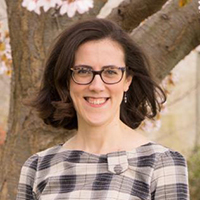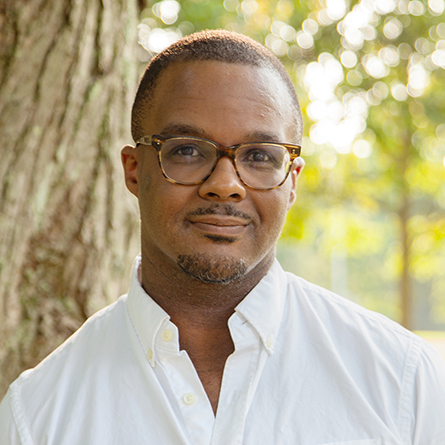
English Professor Hubert Cook awarded Career Enhancement Fellowship from the Institute for Citizens & Scholars
Hubert Cook, the Sue and Eugene Mercy, Jr. Assistant Professor of English at Connecticut College, has been awarded a Career Enhancement Fellowship from the Institute for Citizens & Scholars to complete his book project, Empathy’s Dark Labor: Feeling, Fact, and Late Nineteenth Century U.S. Black Narrative (1892-1905).
Funded by The Andrew W. Mellon Foundation and administered by the Institute for Citizens & Scholars, the Career Enhancement Fellowship seeks to increase the presence of underrepresented junior and other faculty members in the humanities, social sciences, and arts by creating career development opportunities for selected fellows with promising research projects. Selected from a highly competitive pool of applicants, fellows represent unique perspectives within their disciplines and are committed to increasing diversity and inclusion on campus through service and research.
The program provides fellows with a six-month or one-year sabbatical stipend (up to $30,000); a research, travel, or publication stipend (up to $1,500); mentoring; and participation in a professional development retreat.
Cook, a professor at Conn since 2018, focuses his research on affect, emotion and performativity in late nineteenth and early twentieth century African American and Caribbean literature. His book will explore the writing of Ida B. Wells, Charles W. Chesnutt, Pauline Hopkins, W.E.B. Du Bois and other Black writers of the late nineteenth century, whose impersonal and factual expository style, thwarting the readers’ desire for imaginative identification with their subjects, refused empathy in order to offer a truer representation of the Black experience.
“By examining how this cohort of Black writers supposed people accepted, diverted or refused connections with others and why, I show how these writers were continuously thinking strategically about the power relations on which texts are produced. My book unveils how some U.S. Black writers exploited narrative empathy’s assumptions in order to have their readers prefer to the flawed textual representation the flesh-and-blood presence it referenced. These writers’ close attention to feelings becomes visible as a formalist practice, a radical archive available to the investigator of Black life,” Cook said. “I feel grateful for the Institute’s support.”
President Katherine Bergeron commended The Mellon Foundation and the Institute for recognizing the transformative potential of Cook’s work.
“It is gratifying that the Institute for Citizens & Scholars has recognized one of our most talented young faculty working in the humanities,” she said.
“Cook’s highly original argument does much more than open a window onto an under-appreciated literary canon. It has the potential to change both the way we understand reading and the way we read.”
About the Institute for Citizens & Scholars
The Institute for Citizens & Scholars is a 75-year-old organization that has played a significant role in shaping American higher education. Now, with an expanded mission, Citizens & Scholars prepares leaders and engages networks of people and organizations to meet urgent education challenges. The overarching goal is to shape an informed, productively engaged, and hopeful citizenry.

